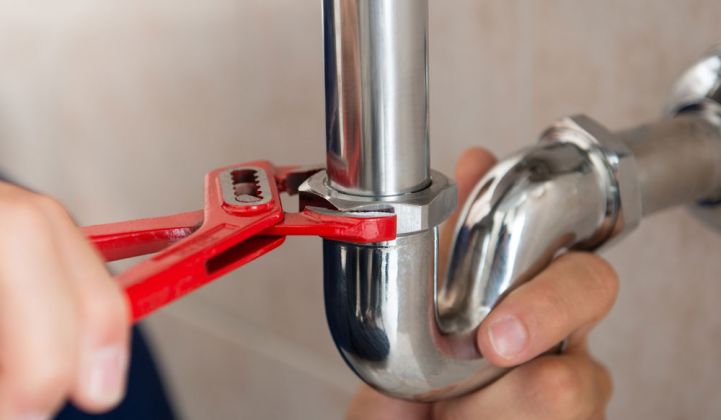The system involves plumbing that diverts water from gray water sources to an underground 75-gallon drum. Within the drum, bubbles are injected into the water to make a frothy mix from which dirt and oil are lifted to the top and removed. The water is then run through a carbon filter and blasted with UV light, and then run through another filter for good measure.
For systems that also recover heat from the water, which is usually warm from being used in showers or laundry, a heat exchanger is added. The heat exchanger transfers the energy back to Nexus’ hot water heater. Nexus says it can cut hot water energy use by 75 percent. Water heating is a significant energy load in the house, accounting for about 14 percent to 25 percent of total energy use in typical homes, according to the U.S. Environmental Protection Agency.
The system might not make sense for most existing homes because of the upfront cost, but for new homes, the payback on new construction can be immediate for builders. Petroff said that the cost of water and sewer tie-ins could be up to $30,000.
He added that houses with his company’s technology only generate one-third as much sewage as an average home, and about one-sixth the peak sewage of new, water-efficient homes. The result for builders is that they can build more homes for the same sewer connection fee.
It’s still early days for Nexus, which will likely need far more municipalities to pass laws similar to Lancaster’s in order to get market traction. Higher water prices would also make a difference, not only for Nexus, but for all water-efficiency technologies that are ready for prime time but have not yet achieved the price signals in the market that they need in order to be widely implemented.
Recycling water could also become the norm on a much larger scale for drought-ridden regions. San Diego, for instance, just approved a measure to turn its wastewater into drinking water.
Credit Source:
https://www.greentechmedia.com/articles/read/next-step-in-sustainability-requiring-homes-to-recycle-water

